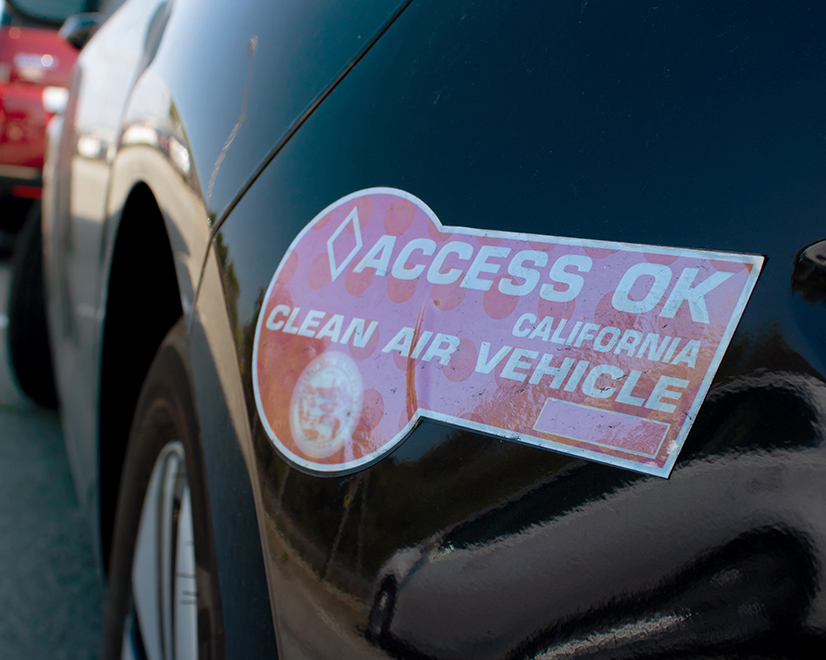A California Air Resources Board (CARB) proposal would give car manufacturers a new way to earn zero-emission vehicle credits under the state’s Advanced Clean Cars program, while potentially increasing access to ZEVs in disadvantaged communities.
The proposal would provide environmental justice (EJ) credits to automakers that sell electric vehicles at a discount to community programs offering services such as ZEV car sharing. EJ credits would also be used to encourage automakers to keep ZEVs in California after their lease expires, thereby increasing the state’s supply of used ZEVs.
CARB staff presented the idea of EJ credits during a workshop on Wednesday. The workshop was part of CARB’s process for updating its Advanced Clean Cars standards for model years 2026 and beyond.
The concept of EJ credits has not been finalized, and CARB is still collecting feedback on the proposal. An Advanced Clean Cars rulemaking package is expected to be presented to the CARB board in June 2022.
Community Program Credit
CARB first adopted Advanced Clean Cars in 2012. The regulations include a low-emission vehicle (LEV) program, which sets emission standards for light- and medium-duty vehicles.
The second part of the effort is a ZEV program, which requires car manufacturers to supply a certain number of battery electric, fuel-cell electric or plug-in hybrid vehicles each year.
The ZEV program uses a system of credits, which are based on a vehicle’s range on a single charge. For example, a vehicle with a range of 100 miles receives about 1.5 credits.
Under CARB’s proposal for updating Advanced Clean Cars, a car manufacturer could use EJ credits to increase the number of credits they receive for a particular vehicle.
EJ credits would be awarded if a ZEV is sold at a discount to a community program that provides services such as car-sharing, carpooling or on-demand rides. The community program would have to serve a low-income or disadvantaged community, tribal lands within a low-income or disadvantaged community, or a community in which at least three-quarters of public-school students are eligible for free or reduced-price meals.
The amount of the discount required would range from 5 to 25%, depending on the manufacturer’s suggested retail price for the vehicle. For example, if the MSRP was between $45,000 and $47,500, the discount provided to the community program would have to be at least 20%, or $9,000 to $9,500.
The manufacturer could receive a credit of 0.5 for each ZEV sold at a discount to a community program, or 0.4 for each plug-in hybrid. Only plug-in hybrids with six seats or more would be eligible.
Used ZEV Credit
CARB has proposed a second type of EJ credit based on the premise that low-income residents are more likely to buy used cars.
Under the proposal, a manufacturer would be able to earn 0.1 in ZEV credits if a new vehicle that is initially leased for three years in California remains registered in the state for at least a year after the lease ends.
Krista Eley from CARB’s ZEV Implementation Section noted that in California, almost a third of new vehicles are leased. And data from CARB’s Clean Vehicle Rebate Project indicate that about 70% of battery-electric vehicles have been leased rather than purchased.
But dealerships that reclaim electric vehicles after a lease often sell the vehicles to another dealer via an auction clearinghouse, and the used vehicles migrate to another state, Eley said during the workshop.
The proposed EJ credit is intended to increase the supply of used ZEVs in California.
“The potential impact of these used ZEVs coming off lease can be significant,” Eley said.
The credit would be available to ZEVs leased from 2026 to 2028, with an MSRP when new of $40,000 or less. Some of the vehicles likely to be eligible under that cap include the Nissan Leaf, Chevrolet Bolt EV, Honda Clarity Electric and Tesla Model 3, according to CARB.




